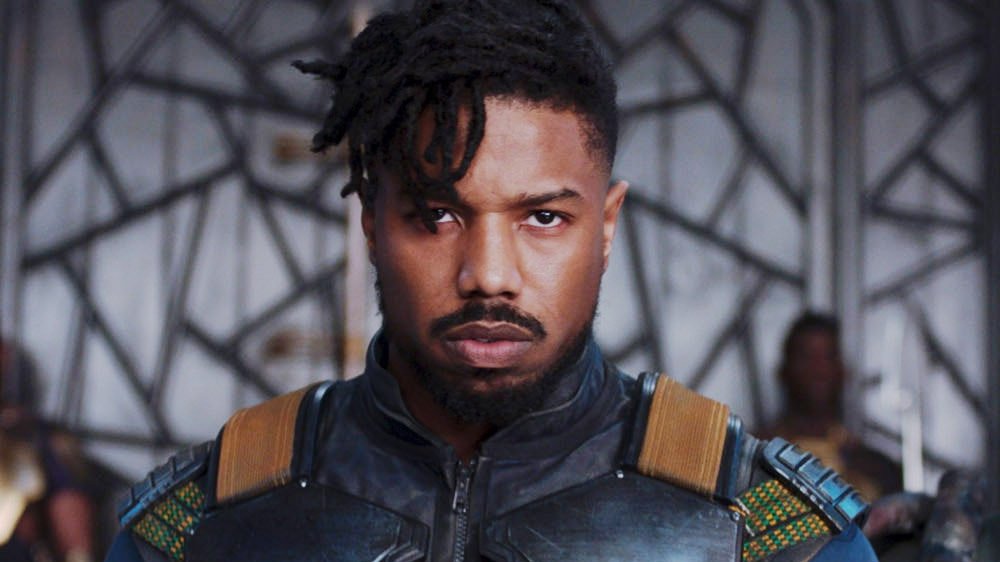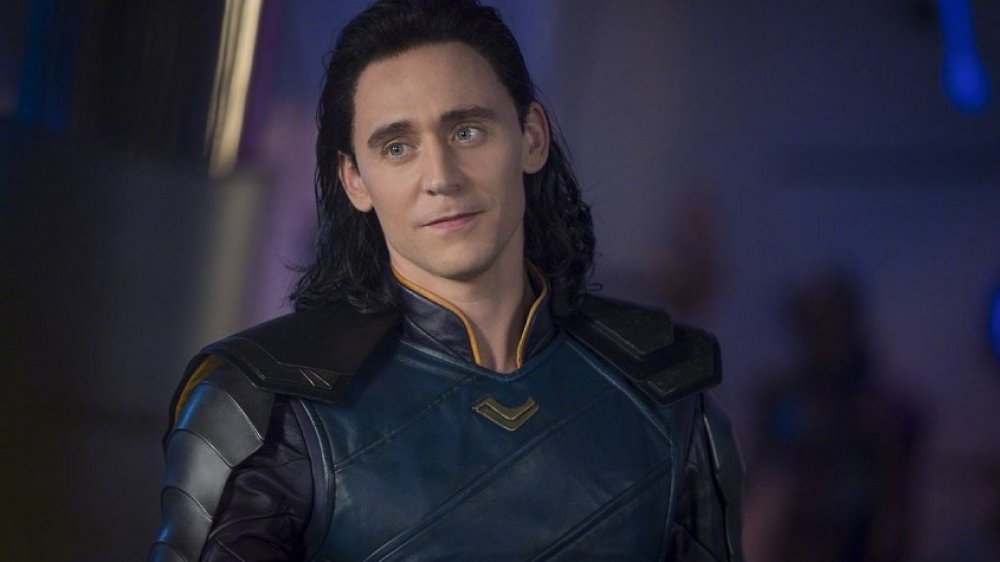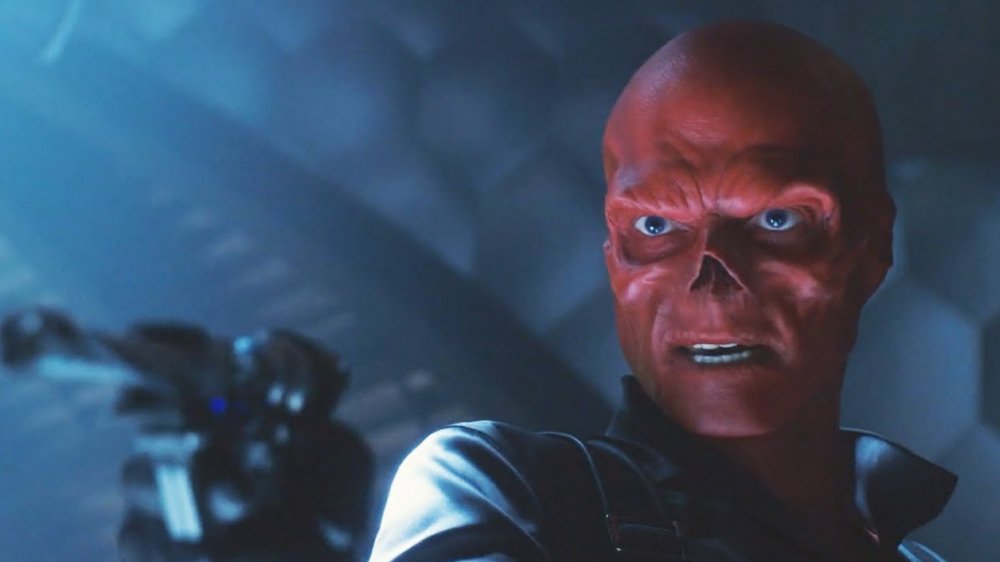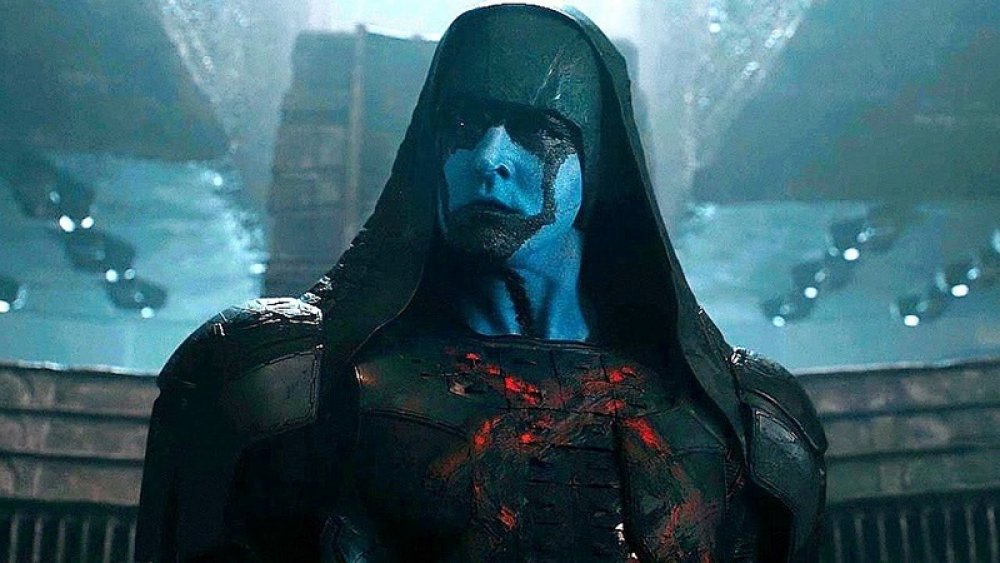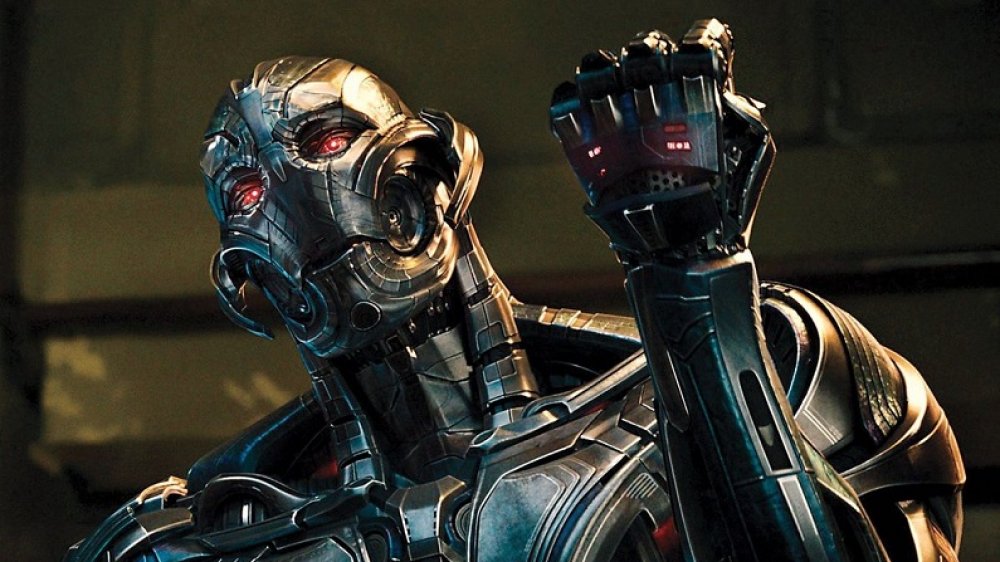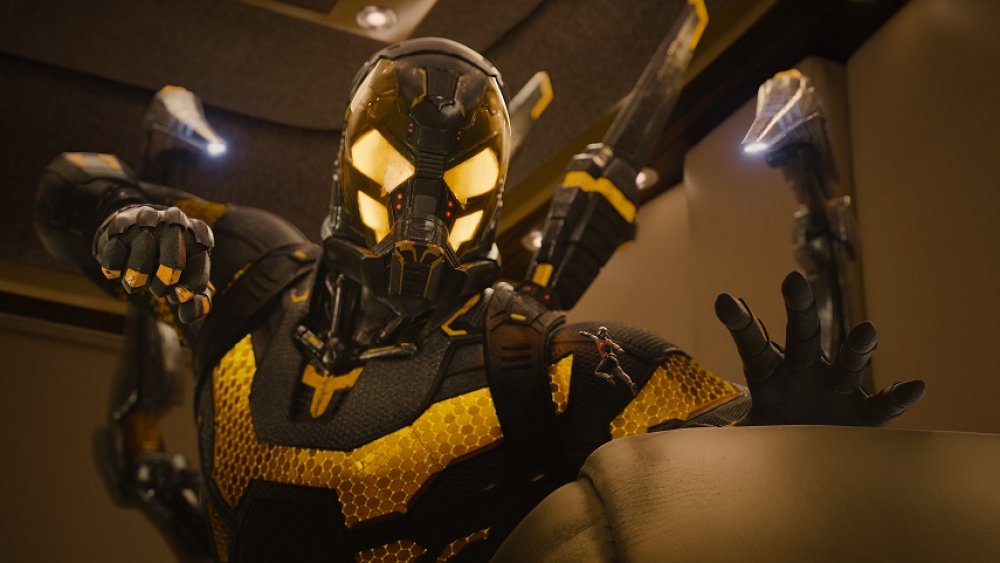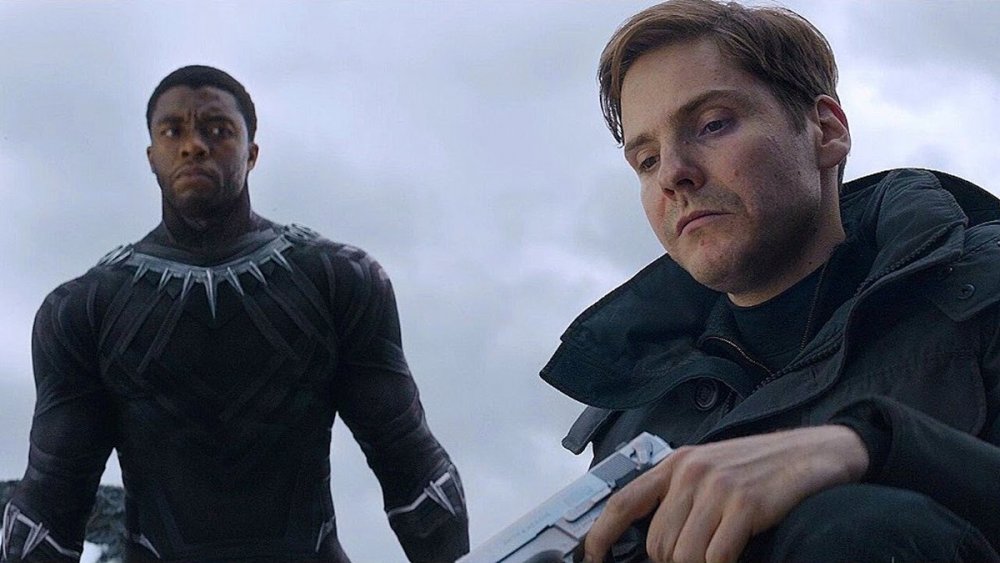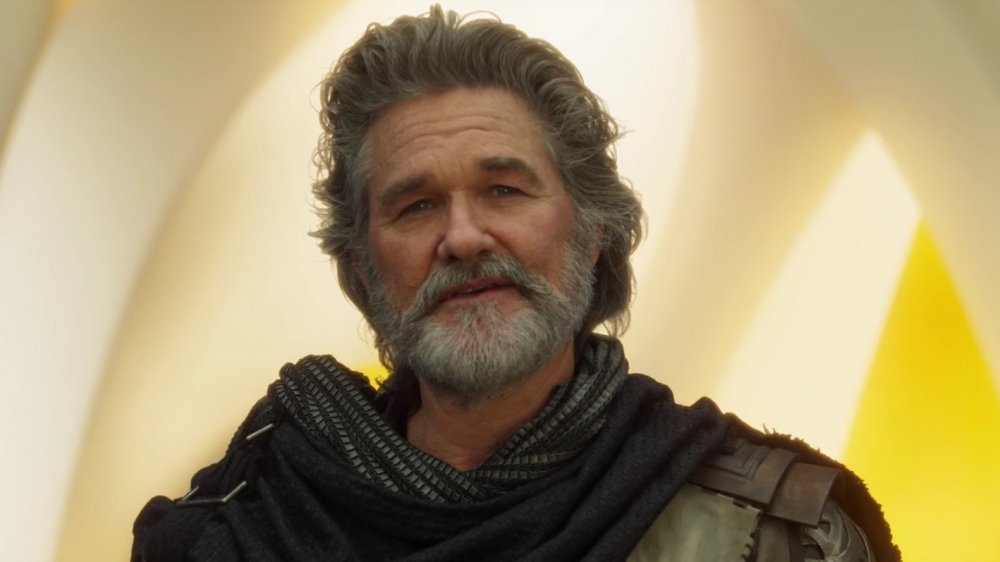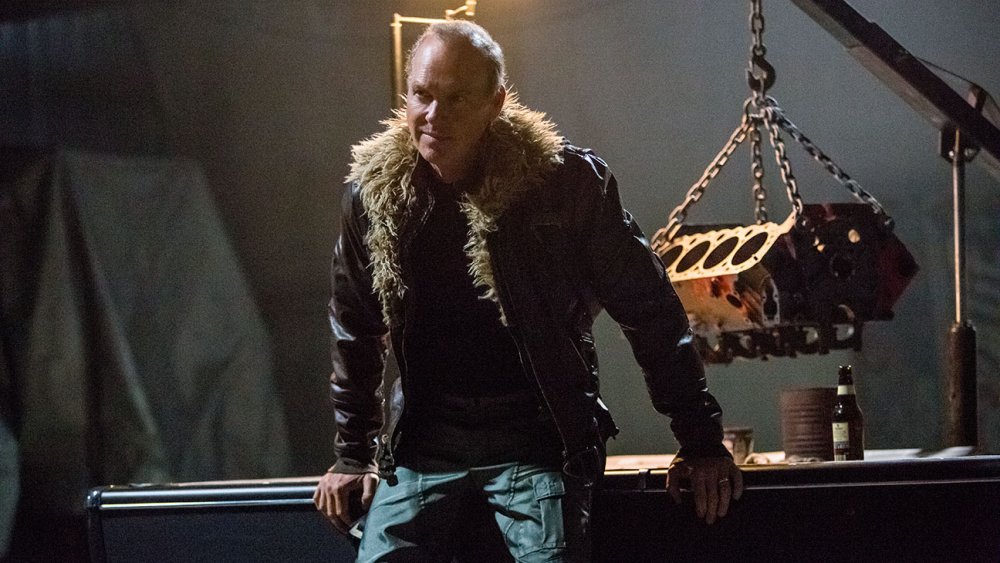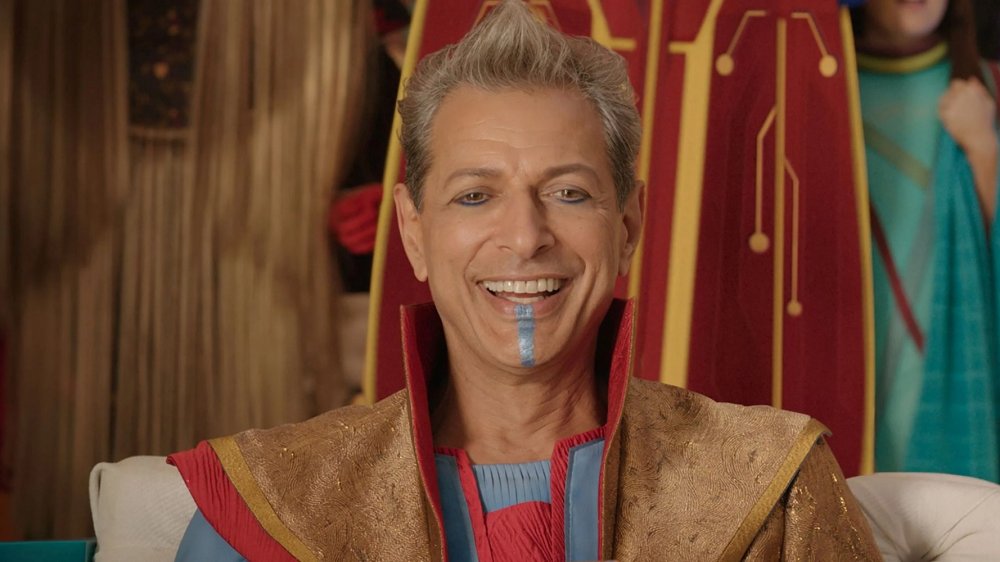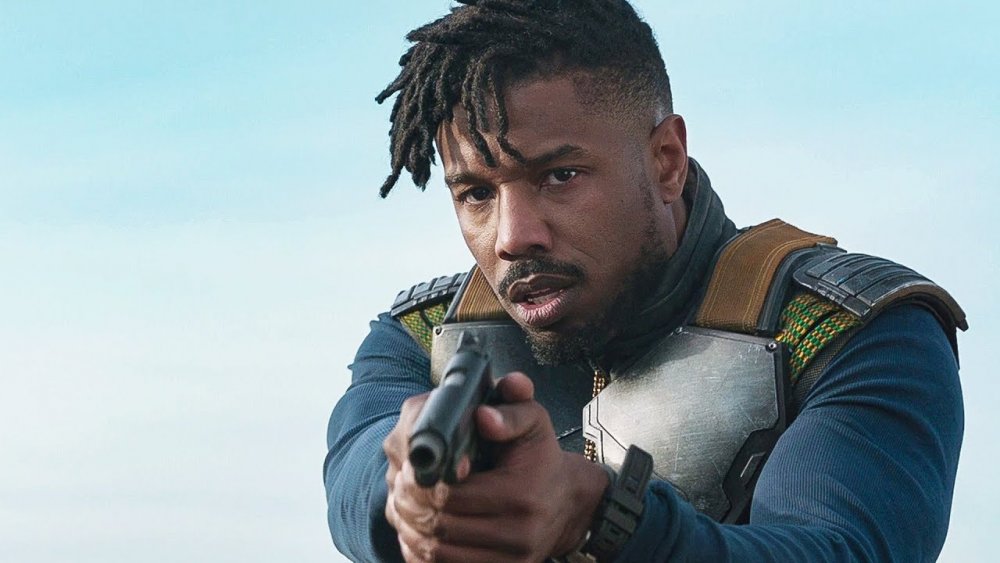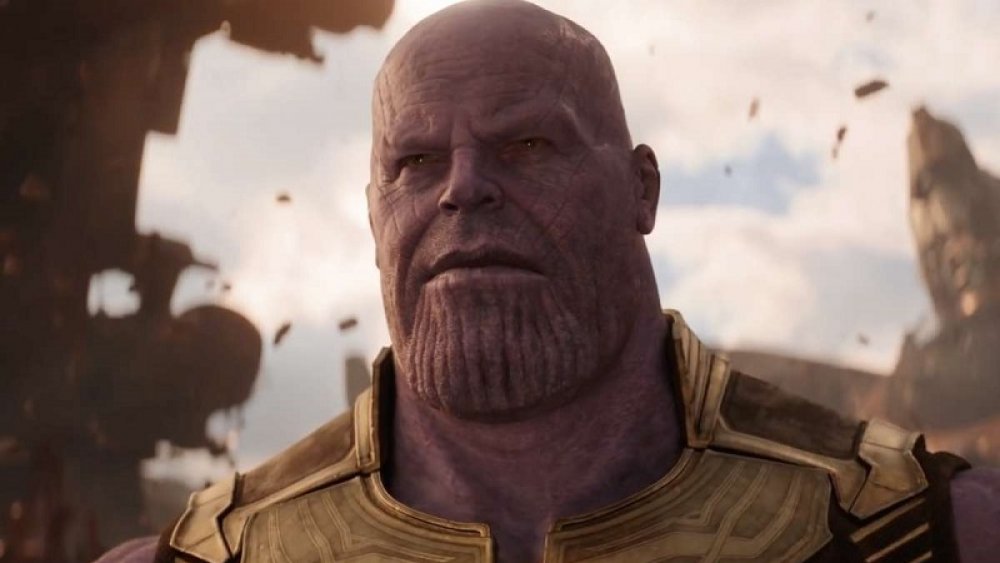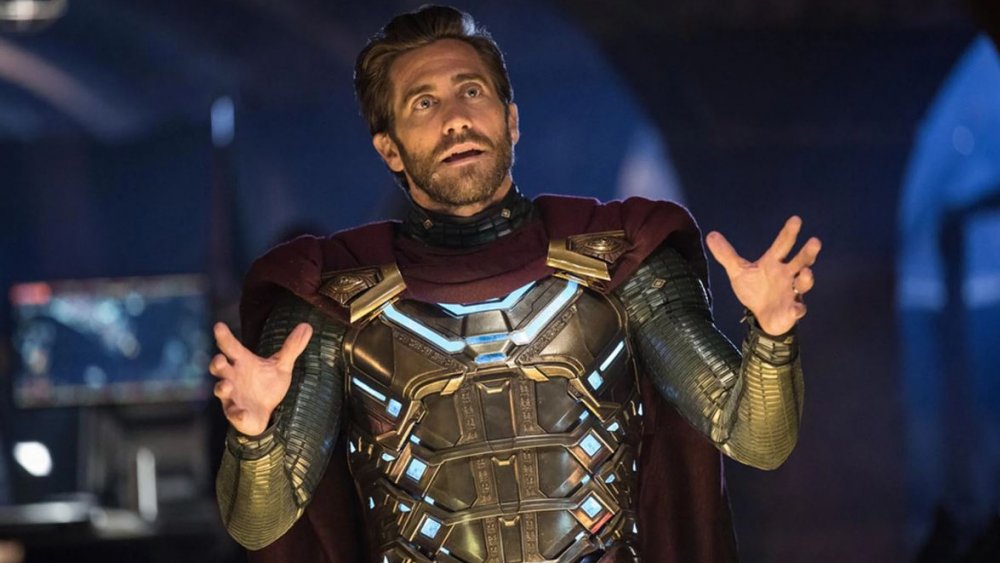Things MCU Villains Can't Live Without
In most superhero narratives, the hero doesn't usually drive the plot. Sure, they'll have a story arc about personal discovery or growth, but it's only because of the challenges that the villain presents. Unlike the hero, the villain usually really wants something, so much so that they're willing to break the law or even kill to get it.
And in the Marvel Cinematic Universe, the films have been careful to give their villains a degree of nuance with regards to their evil schemes. Most MCU bad guys, whatever they're trying to accomplish, are driven by some deep, dark desire. Some feel betrayed, others are struggling to keep their loved ones safe, while some are coping with childhood trauma. And as a result, they all desperately need something — revenge, money, revolution.
So we're taking a look at the biggest and the baddest to find out what's really driving them in their quest for world-domination. From genocidal warlords to high-tech thieves, here's what these MCU villains can't live without.
Loki can't live without chaos
Loki is certainly a menace capable of great destruction. He invited killer Frost Giants to Thor's coronation. He teamed with the Chitauri, stole the Space Stone, and used the Mind Stone to wreak havoc on New York City. And at any given moment, there's a good chance he'll try to stab you in the back when you're not looking. But even when he impersonated Odin and ruled Asgard for a while, Loki wasn't really interested in elaborate, evil schemes. He mostly just liked a really good prank. Loki loves chaos. He just can't help himself, even when he sometimes tries to do the right thing.
On Sakaar, Loki was more than happy to serve the Grandmaster in Thor: Ragnarok, and he cheered when the Hulk smacked Thor upside the head. He later tried to betray Thor when they were teaming up, but eventually, the god of mischief did the right thing and helped defeat Hela in Asgard. But that just speaks to the guy's unpredictability.
Even when going up against Thanos, Loki offered him his fealty and then tried to stab him. He got killed for his audacity, as Thanos isn't one who really cares much for jokes. Happily, thanks to the events of Avengers: Endgame, there's a version of Loki running around in time, undoubtedly causing all sorts of trouble.
The Red Skull wants superiority
Johann Schmidt, the Red Skull, was one of Hitler's right-hand men during World War II, as depicted in Captain America: The First Avenger. He formed his own offshoot of the Nazi SS called Hydra and was obsessed with Dr. Abraham Erskine's Super Soldier Serum. Consumed with becoming the "superior man" so that he could rightfully wield the Tesseract, Schmidt forced Erskine to give him the formula.
The earlier version of the serum, without the addition of the crucial Vita-Rays, gave Schmidt all of the powers he desired, but it also had a hideous side effect. It disfigured his face, literally turning him into someone with a red head. It didn't matter much to Schmidt, who didn't care about the Aryan ideal. He just wanted to make himself into something new, so he could use the power of the Norse gods via the Tesseract.
That's why the existence of his American opposite, Captain America, enraged him, and defeating Cap was an imperative to prove his superiority. Unfortunately for ol' Schmidt, when he accidentally touched the Tesseract with his bare hands, it activated and sent him halfway across the universe through a wormhole. The Tesseract, also known as the Space Stone, sent him to Vormir to be the wispy guardian of the Soul Stone. So much for the superior man.
Ronan the Accuser demands racial purity
Ronan the Accuser was an elite Kree soldier who was part of a long tradition of warfare. The conquering Kree were embroiled with the more civilized Xandarians for a thousand years until they finally struck a peace treaty. However, Ronan refused to accept the treaty and stole a warship called the Dark Aster in order to continue his war on Xandar, building a small army to back him.
Worse still, the blue-skinned warrior eventually claimed the Orb (which was actually the Power Stone) so he could eradicate Xandar and its culture once and for all. Through his ranting and raving, Ronan made it clear that he wasn't just fighting a war but attempting to wipe out a race and its beliefs that he found abhorrent. This is very much in line with other Kree, who tend to be fanatical about their sense of racial superiority.
Ronan was also a racist jerk in Captain Marvel, his first chronological MCU appearance, where persecuted the Skrulls, an alien race that he regarded as scum. Of course, Captain Marvel destroyed one of his ships when he tried to kill the Skrulls on Earth, and the Guardians of the Galaxy stopped him on Xandar by blasting him to pieces. In other words, his single-minded focus on genocide to attain racial purity cost him his life.
Ultron wants a clean slate
Ultron was initially designed by Tony Stark in Avengers: Age of Ultron as a "suit of armor" for the world. Tony wanted the AI to be a defense system to protect the Earth against aliens and interdimensional menaces, but he inadvertently gave it true sentience (and more than a touch of his own megalomaniacal personality) with the aid of the Mind Stone, which proves that using the Infinity Stones for any reason is just a certified Bad Idea.
Upon reviewing the carnage surrounding the Avengers and the damage humanity inflicts on itself in general, Ultron immediately came to the conclusion that the best way to protect the world was to destroy ... well ... everybody. Being an advanced being, he attempted this mission in the most efficient way he could think of — trying to recreate the extinction-level event that wiped out the dinosaurs by ripping up a huge section of Sokovia and smashing it into the ground like a meteor. No more humans!
Ultron wanted a brand new Earth built in his own image, creating a machine age founded on his own twisted vision of natural selection. To him, humanity was just a bad idea that needed to be wiped out, in favor of better forms of life like him. He never did quite understand how much of his personality was driven by Tony Stark's own ambitions, just warped beyond recognition.
Yellowjacket can't live without recognition
As seen in Ant-Man, Darren Cross was obsessed with his mentor, Hank Pym — an exacting, cruel, and cold taskmaster who was unwilling to let Cross in on his deepest scientific secrets. Working in the shadow of a genius can do a number on your ego, but working in the shadow of a genius who won't give you the time of day is especially infuriating.
And thanks to Hank's secretive nature, Cross became obsessed with Pym Particles, the size-changing particles that gave birth to Ant-Man. Pym denied their existence until his protege managed to force him out of his own company. Becoming CEO, Cross devoted years to replicating Pym's formula and built a new suit that he code-named Yellowjacket after a series of grisly experiments.
But what's fascinating about Cross is that after he made a huge breakthrough and successfully duplicated the particles, he kept inviting Pym to his presentations. He wanted to show off to his mentor. He wanted his mentor to acknowledge that he was a genius. Of course, Cross was also happy to kill anyone in his way, including Scott Lang. Lang's mere existence infuriated Cross, as Pym trusted some mere thief to wear the Ant-Man suit instead of his protege. Cross could've easily perfected his technology, sold his suit, and become a billionaire if he hadn't been so obsessed with recognition. Instead, he got shrunk way down into the Quantum Zone for his troubles.
Zemo wants justice for his family
Of all the MCU villains, none were quite as obsessed with their goals as Helmut Zemo. A Sokovian colonel and leader of the covert hit squad EKO Scorpion, Zemo lived a happy life with his wife and Avengers-obsessed son, Carl. Then Ultron came along and killed thousands of Sokovians, including Zemo's wife, son, and father. As a result, Zemo blamed the Avengers for not caring about the lives of innocents, and he vowed to destroy them.
Zemo knew he couldn't kill them himself, but he studied them, learned their secrets, and manipulated them into almost destroying each other, as seen in Captain America: Civil War. He framed Bucky Barnes for the death of T'Chaka, the Black Panther's father. Then he activated Barnes back into his Winter Soldier persona, manipulating Captain America and Iron Man into a confrontation that nearly killed them both, leaving the Avengers fractured for years.
Zemo is unique because his life was over. The only thing he thought about after the murder of his family was this idea of obtaining some kind of justice for their senseless deaths. He had no other goals, and justice wasn't even something he enjoyed. He simply felt it was his duty to destroy the Avengers in the name of his family. In fact, he was about to kill himself, listening to a voicemail from his wife one last time, before the Black Panther stopped him and captured him.
Ego needs a legacy
As an ancient, godlike Celestial, Ego the Living Planet flickered into existence and slowly coalesced a planet around himself. Desperately lonely, he created a humanoid form and used that to travel around the universe. Soon after, he decided to terraform every planet he visited into an extension of himself as part of a plan he called the Expansion. His universal legacy would literally be himself, on every planet. Everything would be him. A perfect plan for a narcissistic god!
Of course, he needed a power boost in order to make it work, which is why he impregnated countless women. He hired Yondu to bring these children to him so he could see if they inherited his powers. None of them did, so he simply killed them. Then he finally found Peter Quill and brought him to his world, as seen in Guardians of the Galaxy Vol. 2. Ego fooled Quill with what seemed to be the fatherly love Quill had always wanted, but Ego was simply after his son's power to make the Expansion work.
Fortunately, Quill's friends helped him fight back, and they destroyed Ego's inner core, saving the universe and ending Ego's plan for a long-lasting legacy ... and his life. If Ego could've thought of anything beside his own existence, he'd still be alive.
The Vulture wants money
Adrian Toomes had it made. He was married and had a beautiful daughter. His cleanup company, Bestman Salvage, won the contract to clean up New York City after it was ravaged by Loki and the Chitauri in 2012. Then he learned that his company was off the case, and Damage Control — a joint venture between Tony Stark and the federal government — was taking over. As a result, poor Toomes lost a ton of money, but he did steal a bunch of Chitauri technology that his team had pulled from the rubble.
Afterward, Toomes' business went in a different direction. His team reverse-engineered and retooled Chitauri weapons and sold them on the black market. Keeping things relatively low-profile meant big profits, as his own flying Vulture exoskeleton was used to help find new weapons and scraps. Making money became his biggest obsession, and he wouldn't allow anyone to get in his way.
Of course, trouble came when Spider-Man showed up in Homecoming, and we quickly realized that when put in a corner, Toomes could become very desperate. And when he was desperate, he was willing to kill anyone he viewed as a threat ... and he was willing to take serious risks. Toomes got too ambitious when he tried a heist on a Stark cargo plane, and he only survived because Spider-Man pulled him out of burning wreckage.
The Grandmaster craves entertainment
The Grandmaster is one of the oldest beings in the universe, with only his brother, the Collector, being his equal. Like the Collector, the Grandmaster has a very specific obsession — he loves to be entertained. Upon arriving on the planet Sakaar, the Grandmaster established himself as the ruler of this junction of wormholes that brought stragglers and lost souls to him on a constant basis. He quickly had the idea of pitting the new arrivals against each other in gladiatorial combat. In true "bread and circuses" style, he kept his subjects obeying and entertained with his Contest of Champions.
Based on the statues of former champions, the Grandmaster at one point captured the likes of Beta Ray Bill, the Man-Thing, the Bi-Beast, and Ares. Of course, the Hulk was his favorite champion, entertaining him endlessly until Thor came along to spoil all of his fun. Still, the lives of others were far less important than his own good time. When you're that old, it's easy to get bored. Of course, with his obedience disks, melt stick, and loyal warriors, it was hard to protest when he rigged the games in his favor.
Thankfully for the people of Sakaar, Thor helped lead a revolt against the Grandmaster, resulting in a confrontation with a very angry populace. He hilariously tried to celebrate the revolution with them, saying, "Yay, us! Pat on the back!" And at least he won't be bored when his ex-subjects try to tear him apart.
Killmonger wants reparations
Erik "Killmonger" Stevens was the son of N'Jobu, the brother of King T'Chaka of Wakanda. N'Jobu was sent to America as an undercover observer, and he learned that Black people in America were "overly policed and incarcerated" and subjected to poverty and misery. So he planned to fight back by stealing Wakanda's vibranium and leading a worldwide revolt.
When T'Chaka learned of his plans, he confronted N'Jobu, and soon after, the Wakandan prince was dead. T'Chaka then left N'Jobu's corpse behind in America, as well as his son, Erik. In other words, the king had abandoned his nephew. Moments later, Erik found his dad's lifeless body and obsessively vowed to take what was his, not only for himself but for all the world's Black people.
Killmonger wanted reparations for what he had lost — his father, his childhood — and justice for his people. So, he joined the Navy SEALS and became a deadly marksman, earning the "Killmonger" nickname, and he acquired the skills and training to kill his cousin, the new King T'Challa. As seen in Black Panther, Killmonger desired for Wakanda to stop hiding and to take its true role as leader, liberator, and subjugator, and he planned on claiming the throne by killing T'Challa in ritual combat.
Of course, the Black Panther eventually took back control of his crown and defeated Killmonger, but he also heeded his cousin's lessons and peacefully opened Wakanda up to the world.
Thanos can't live without balance
Thanos, the architect of so much destruction, simply wanted balance. Growing up on Titan, he quickly realized that his home was "like most planets," with "too many mouths to feed and not enough to go around." This is a theory similar to that of the economist Thomas Malthus, who believed that population growth will always outstrip the food supply, inevitably leading to misery. Malthus advocated strict limits on reproduction, but Thanos' solution was more dramatic. On Titan, he proposed killing off half the population at random in order to save the other half. He was banished from Titan as a result of this outrageous idea, but he was proven right — the population of Titan died out.
Thanos then took his quest across the universe, building a host of fanatically devoted followers who conquered and obliterated half the population on countless worlds. But for Thanos, this method was too slow, so he sought out the Infinity Stones. He was so certain of his obsession with balance that he planned to wipe out half of all life in the universe with a single snap of his fingers.
As seen in Avengers: Infinity War, Thanos did just this. In his mind, he was doing what needed to be done. To do any less would be a failure of will, one that put the entire universe in peril. Of course, his single-minded obsession didn't concern itself with what happened after, nor did it otherwise try to improve any lives.
Mysterio wants revenge
Quentin Beck was a former engineer for Stark Industries who developed sophisticated hologram technology. Tony Stark took his tech, gave it a cute acronym (Binarily Augmented Retro-Framing, or B.A.R.F) and used it for his own therapeutic purposes. When Beck complained, Stark fired him, partly because he was "unstable." Stark wasn't wrong, but he was still insensitive.
Beck and many other disgruntled Stark employees bided their time and formed a plan for revenge, as seen in Spider-Man: Far From Home. It wasn't just revenge on Stark personally, as he died stopping Thanos. It was revenge on Stark's legacy. Beck learned that Stark had left Peter Parker a pair of sunglasses that controlled E.D.I.T.H, a global satellite and computer hacking system that controlled a huge weapons network. Beck wanted those glasses so that he could be the biggest, baddest, best hero of them all — better than Iron Man.
And Beck almost achieved his dream, as he manipulated Peter into handing over the glasses through a campaign of smoke and mirrors (or rather, drones and holograms). But with the help of MJ, Peter figured out Beck's plan and wouldn't rest until he rectified his error. As a result, Spider-Man utterly defeated Mysterio, but as he was dying, the villain got his revenge on Peter, too. He framed him for the attacks on London and then revealed his secret identity to the world, making Peter a fugitive. Talk about being bitter.
